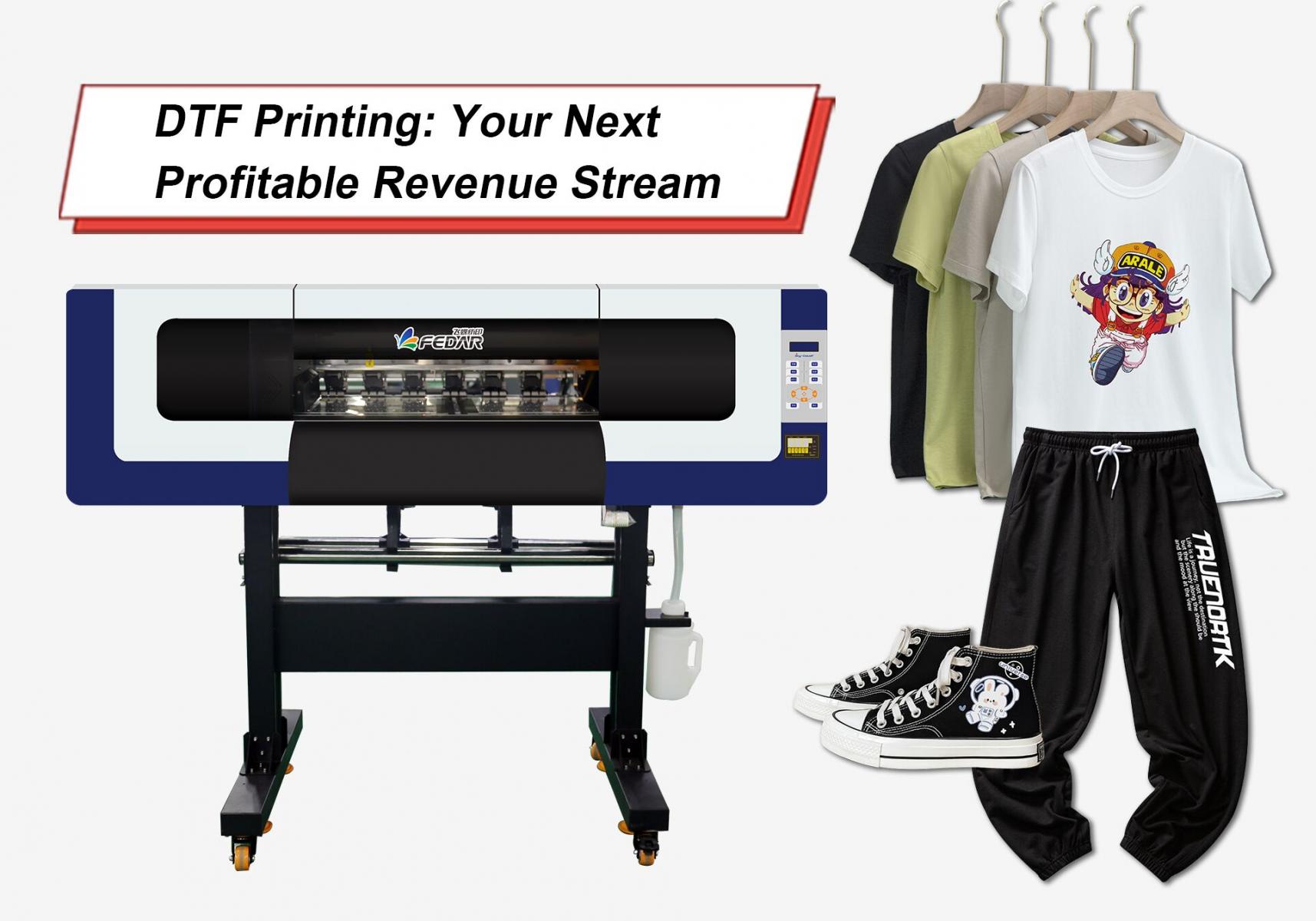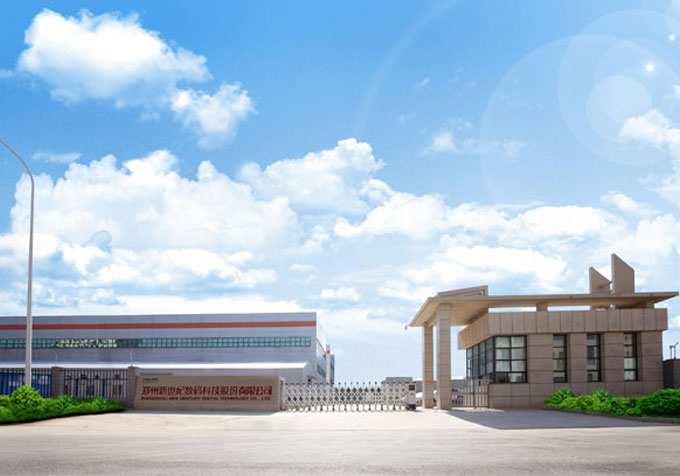25
Jul
Discover how DTF printing can be your next profitable revenue stream. Learn how to set up, strategies, and growth tips in this human‑written guide.
Are you looking for a creative business idea that won’t be too expensive to start? Direct‑to‑film printing is an easy way to turn designs into profitable clothing and merchandise. Unlike other difficult methods, DTF requires a small space, no pretreatment chemicals, and makes durable and beautiful prints.
In this guide, we’ll break down how DTF printing actually works and what makes it different from other methods out there. You’ll also get real, practical advice on how to kickstart your setup and turn your creativity into a solid way to earn money.
DTF printing works by applying special DTF ink onto a transparent film. This is followed by sprinkling hot‑melt powder. The print is then cured with heat. Once it is ready, you press it on fabric or other materials using a heat press. Adhesive bonds the ink to the surface, creating a soft and long‑lasting print.
Because there’s no need for chemical pretreatment, it is faster and cleaner. You can transfer onto various fabrics, including cotton, polyester, blends, and even items like wood or leather.

DTF inks yield vibrant colors and crisp detail, with gradients that are often not represented on screen-printing setups.
From t‑shirts to tote bags, DTF works on more materials than DTG printing.
No screens or pretreatment machines are required, only a printer, films, inks, powder, and a heat press.
DTF transfers withstand 50–60 home‑wash cycles without cracking or fading, making them ideal for apparel meant to last.
The simple answer is: getting started is cheap and easy. A corner of your garage or home office is enough for a DTF printer, rolls of film, inks, and a heat press. You can do small orders for friends, local clubs, or online shoppers, and reinvest what you make to grow. Offering quick production and unique designs helps you be different in the market.
A reliable entry‑level DTF printer that'll cost around $1,500–$2,500 and a 15×15 heat press is perfect for most beginners.
Invest in certified DTF inks, films, and adhesive powder from reputable vendors.
Choose a ventilated area with stable power. Keep your printer, film, and powders organized for good workflow.
Test prints on useless fabric. Adjust resolution, powder application, curing time, and press settings until you feel your prints are perfect.
Designing is the selling point of printing businesses everywhere. You can start with creating simple two-tone graphics using tools like Illustrator or use free tools if you're on a budget. If you're selling customized prints too, add an upload option to your website so customers can send in their designs.
You can begin DTF printing as a weekend side project. With just a few hours invested in design and press time, you can fulfill small orders like custom family reunion shirts or local club merchandise. As demand grows, reinvest what you earn into more printers, dryers, or even hire people to increase your capacity. Many people move from side hustle to full‑time business once they establish good sales channels and repeat customers.
Local Partnerships: Reach out to nearby gyms, schools, and small businesses to offer printing at discounted rates.
Social Media: Share videos of the printing to reach potential customers and build trust.
Promotions: List limited designs for holidays, sports seasons, or community events to make a sense of urgency and higher sales.
Bundles: Combine t‑shirts with matching hats or bags, and offer design and printing packages to increase the order value.
Referral Programs: Encourage satisfied clients to refer friends in exchange for a small discount on future orders as word‑of‑mouth is very powerful.
Calculate costs by adding ink, film, powder, labor time, and overhead. For example, if materials cost $3 per shirt and you spend $7 in labor and overhead, consider a base price of $15–$18. To set good prices, check local and online competitors and balance with profit margins around 30–50%. Always consider shipping fees and taxes.
Starting any new printing business comes with problems. Powder clogging, inconsistent adhesive distribution, and skewed prints are common issues. To prevent issues like clogs, clean your shaker regularly.
Invest in a small weighing scale to ensure same coating. For alignment, use tools or simple tape guides on the heat press. If you get some negative feedback about peeling, adjust temperature or pressure until you get it right.
Once you have learned all this, it’s time to go up. Start with getting bigger equipment, bigger printers, and improved heat presses, which will help you complete more orders. Try to work with brands or local shops that need regular prints. You could also print for other businesses, let them sell while you do the printing.
Don’t be afraid to do experiments. Try printing on hats, bags, or even mugs and tiles. The more variety you offer, the more people you’ll get. And if you’re swamped, look into small automation tools like conveyor dryers or basic loaders.
DTF printing is honestly one of the most flexible and exciting ways to start making money on your terms. It’s easy to get into, works with tons of materials, and the results look amazing, whether you’re just doing it on the side or going all in. Set up a space that works for you, get your designs ready, face the learning curve head-on, and don’t be afraid to put yourself out there. Start small, grow at your own pace, and trust yourself!
If there's anything we can do to further showcase machines' features, please let us know.
Email: sale@fedar.net
Whatsapp: http://wa.me/8615515715397
Our company has over 30 models of printers with independent intellectual property rights and patents. Marketed under the esteemed brands of Skycolor, Stormjet, and Fedar brands, these printers cover a wide range, including digital textile printers, UV printers, eco-solvent printers and more. Known for their exceptional quality and performance.
